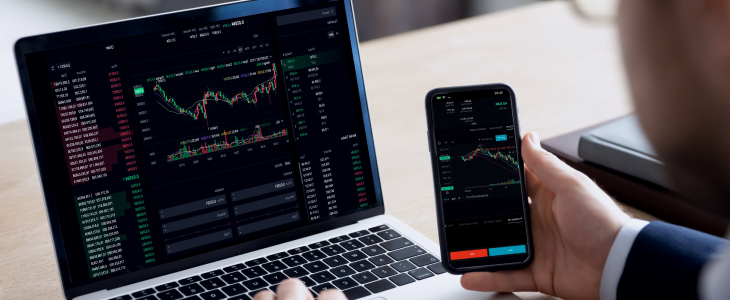Is Forex Trading Halal or Haram Understanding the Islamic Perspective 1838855204

Forex trading, the global market for trading currencies, has witnessed exponential growth over the past decades. With the rise of technology and online trading platforms such as forex trading halal or haram https://trading-terminal.com/, this market has become accessible to a broad audience. However, for many Muslims, the question remains: Is Forex trading halal (permissible) or haram (forbidden) in Islam? This article aims to explore the Islamic perspective on Forex trading, delving into the principles of Islamic finance and the arguments on both sides of the debate.
Understanding Halal and Haram in Islamic Finance
In Islamic finance, the concepts of halal and haram dictate the permissibility of financial practices. Halal refers to actions that are permissible under Islamic law, while haram indicates those that are prohibited. The guiding principles are largely derived from the Quran and the Hadith (sayings and actions of Prophet Muhammad). These principles emphasize fairness, honesty, and justice in financial transactions, and prohibit practices involving Riba (usury or interest), Gharar (excessive ambiguity or uncertainty), and Maysir (gambling).
The Basics of Forex Trading
Forex trading involves the exchange of one currency for another, with the intention of making a profit from changes in exchange rates. Unlike traditional stock markets, the Forex market operates 24 hours a day, five days a week, and involves participants ranging from central banks to individual traders. The aim is to buy currencies at a lower price and sell them at a higher price, effectively betting on the future movement of currencies. However, the complexity of transactions raises questions about their compliance with Islamic principles.
Arguments for Forex Trading Being Halal
Proponents of Forex trading in the Islamic community argue that it can be halal under specific conditions. Here are some of the key arguments:
1. No Riba Involved
Many Islamic scholars assert that Forex trading does not involve Riba, especially in cases where trades are executed in a spot market. Unlike traditional banking, where interest is charged on loans, Forex trading does not lend itself to interest payments if conducted correctly.
2. Real Economic Activity
Forex trading facilitates real economic activity by enabling businesses to hedge against currency fluctuations. This aspect aligns with Islamic financial principles which advocate for transactions that support actual economic endeavors.
3. Trading with Intention
If conducted with a clear intention to engage in legitimate trade rather than sheer speculation, Forex trading can be seen as a business activity, which is permissible in Islam. As long as the trader maintains a focus on ethical practices, it aligns with Islamic values.
Arguments Against Forex Trading

On the other hand, numerous scholars argue that Forex trading is haram, citing several reasons. Below are the prominent points:
1. Speculative Nature
Critics highlight the speculative nature of Forex trading, which often resembles gambling (Maysir). The unpredictable nature of currency movements and the potential for significant losses can lead to behavior that is viewed as a gamble rather than a legitimate trade.
2. Lack of Ownership
In many instances, Forex traders do not possess the underlying asset (currency) they are trading. Islamic finance principles emphasize ownership; thus, trading without actual ownership may not align with Halal financial practices.
3. Involvement of Riba
Some types of Forex trading may inadvertently involve Riba. For instance, overnight positions in Forex trading often incur swap fees, which are technically interest payments, making such trading practices haram.
Islamic Forex Brokers
For Muslim traders interested in participating in Forex, numerous brokers offer Islamic accounts designed specifically to comply with Sharia law. These accounts typically do not incur swap fees and provide trading conditions more aligned with Islamic finance principles. It remains critical for traders to research and choose brokers that have a good reputation and transparent practices.
Final Thoughts
Ultimately, the debate surrounding the permissibility of Forex trading in Islam may not yield a uniform consensus. Different scholars and interpretations lead to varying conclusions based on individual beliefs and practices. Whether one views Forex trading as halal or haram can depend heavily on personal adherence to Islamic principles and the methods in which trading is conducted.
Before venturing into Forex trading, it is crucial for Muslim traders to seek guidance from knowledgeable scholars and ensure their trading practices align with their beliefs. It may also prove beneficial for traders to keep abreast of developments in Islamic finance and the evolving perspectives on Forex trading.
Engaging with Community
Regardless of personal opinions on the matter, discussing these topics within the community can help individuals to better understand the diverse perspectives on Forex trading. By engaging in open dialogues, traders can share insights, learn from the experiences of others, and refine their understanding of the intersection between finance and faith.
In conclusion, while the question of whether Forex trading is halal or haram remains a complex and nuanced topic, it is essential for traders to approach it thoughtfully, with careful consideration of Islamic values and principles. Whether one chooses to participate in Forex trading or refrain from it, the focus should remain on making informed decisions that reflect one’s faith and ethical standards.
